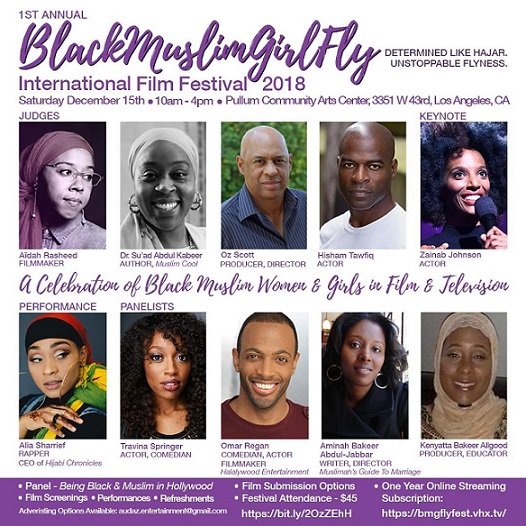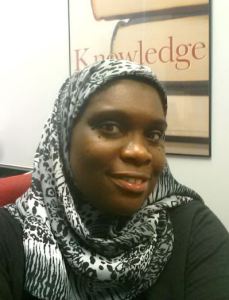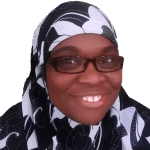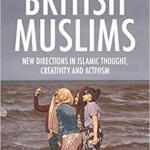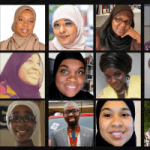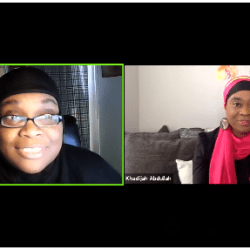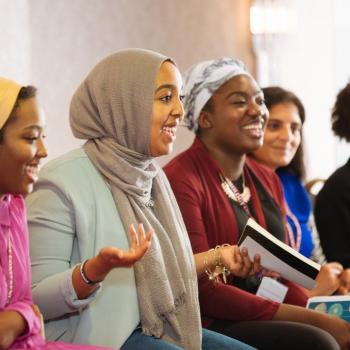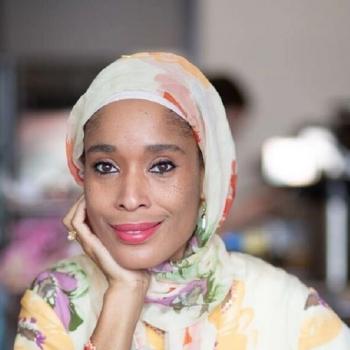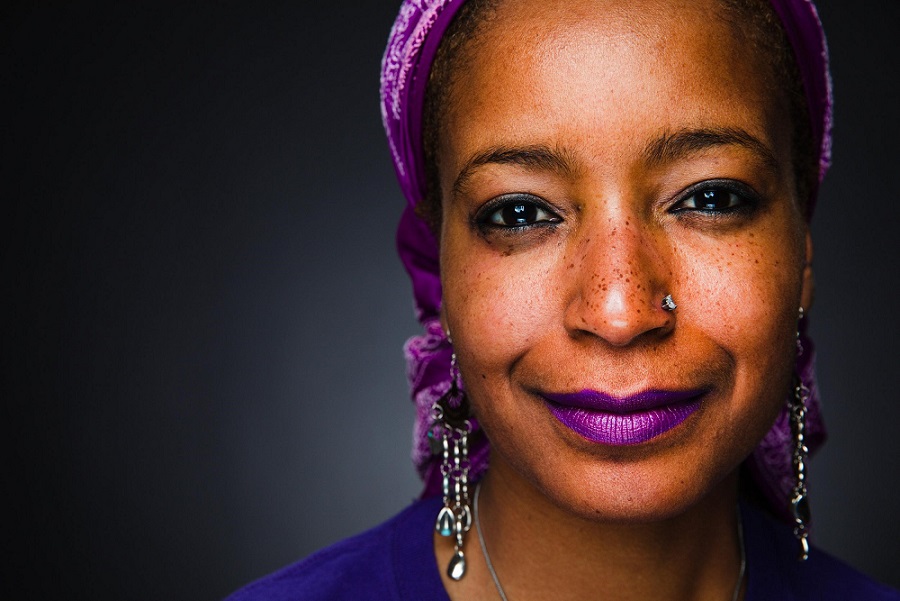
Layla Abdullah-Poulos
One-dimensional stories about and depictions of American Muslims saturate the media, ignoring the richness of the culture. Black Muslim women are at the forefront of creating various forms of media to subvert prevailing misconceptions about the complex composition of Muslims in America and venture into further controlling our cultural narratives.
Unfortunately, the talents of Black Muslim women creatives is largely ignored inside and outside of Muslim culture in favor of cultural productions that promote American Muslim phenotypes and tenacious anti-Blackness through erasure.
In an effort to highlight the artistry of Black Muslim women, Audaz Entertainment is hosting the first #BlackMuslimGirlFly International Film Festival at the Fernando Pullum Community Arts Center on Dec 15, 2018. The event will showcase the television, film, and fictional creations of Black Muslim women.
I had a chance to talk with event creator, Nia Malik Dixon about the festival and the importance of representation in culture.
What is Black Muslim Girl Fly?
Black Muslim Girl Fly is that “it-factor” that only Black Muslim Girls and Women possess. It’s a code in our DNA, it’s an inheritance from our mothers, it’s something no one can touch, and it comes from within; naturally, God-given, and divine. We are just Fly, Dope, Hella Fresh, and any other terminology that conveys that special thing about us that exudes from us and makes us special. It comes out in so many ways, whether it’s that fly way she always has her head wrap on point and can show you how to do the same, or it’s her nerdy creativity expressed in sci-fi stories about Afro-futurism, or the way she embraces everyone with love and people always genuinely feel it, or the way she brings people together with a bomb-ass meal, or, or, or… I could go on forever and never run out of examples of #BlackMuslimGirlFly. We are so diverse in our flyness.
What were your motivations for having an international film festival?
Honestly, the idea to put together a film festival for Black Muslim Women filmmakers came to me as an epiphany on a random walk one day, just me and my thoughts. As a writer, I walk a lot and think. It’s like breathing to me, thinking. When I was a kid, the elders in my community would say, “stop daydreaming,” but what they didn’t know was that I was pondering the universe. And, one day while walking and pondering the universe, I thought “What if we have a platform that puts the spotlight on us, Black Muslim Women creators?” I recently attended Sundance this year for the first time, and it was amazing. I learned so much about the film business, the people in it, and the machinations of the business side of it. As we say, it’s not “show art,” it’s show business. And, the fact is, we (Black Muslim Women) aren’t a critical part of that. At Sundance, I felt like, as I often do in spaces like those, that I was the only Black Muslim Woman creator there. I’m sure there were others there like me, but I don’t recall seeing or meeting them. So, I reflected back to a series of Sundance 2018 panels of Black Women executives, producers, and actresses with industry power. There was one I attended with the topic of how Black Women in power positions in film and television are essential and need to be permanent, not just a trend. I even spoke up at the end of one of those panels, (you can hear one of those moments on Angela Rye’s podcast from Sundance 2018,) and I asked about the inclusion of Black Muslim Women in that conversation. I love that Tessa Thompson asked me what I thought WE could do to build that inclusion. And, the answer I gave is mentorship. More community.
“Why are we waiting for people who refuse to even acknowledge our existence, to give us opportunities? We can create our own.”
More uplifting of each other, and putting the spotlight on those who don’t get it. Recently I had a conversation with a talented and established Black Muslim actress who spoke about an experience where she and her producing team were seeking a Black Muslim female writer. They went to all the top Hollywood agencies with their search, and was told ‘that doesn’t exist.’ And, I’ve taken meetings at least two of those agencies. That made me think on my walk that day, “Why are we waiting for people who refuse to even acknowledge our existence, to give us opportunities? We can create our own.” Yes, we exist. Yes, we have been working, and grinding it out for years, some of us decades, creating compelling work. We need to put the spotlight on us, especially on those of us who are just getting started, who would benefit from the exposure, and perhaps earn a mentor and/or opportunities that lead to creating more projects for the global audience.
What are some the cultural backgrounds of the film creators?
The cultural backgrounds of the Muslim women who submitted their films are as diverse as we are as Black Muslims. Some of our people hail from the East coast of the U.S., some from the South; whether the city, the suburbs or rural America. Some of us have Afro-Carribean roots, some of us have African countries as a home. Viewers should know that not every Black Muslim eats and likes bean pies. And, Black American Muslim culture is so very intersectional that traditions (outside of spiritual practice) vary. We are a diasporic, global community. That is reflected in our filmmakers.
How important are Muslim filmmakers to stabilizing narratives about Muslims in America?
Muslim filmmakers, specifically Black Muslim filmmakers are essential, I’d say crucial, to stabilizing the narratives perpetuated about Muslims in America. All Hollywood has been doing, until recently, has been this kind of gate-keeping, filtering to the wide audiences the narrative that is limited by their own lack of knowledge and understanding. Executives and companies with money and power to tell stories to a global audience, pick and choose these limited roles and storylines.
The stereotypes and the narrow focus on non-Black immigrant Muslims is totally biased. Black Muslim filmmakers provide a more complex, and wider scope of stories of American Muslims.
Our ancestors have been here since before America was even a country. We have a rich history as Black Americans, and it’s one that is so diverse and variegated that the narrative of the Muslim American starts with us, is nuanced and complex, and it is wider and goes deeper than what’s on television and in films today. We’re doing our audiences a disservice and robbing them of great stories that reach across intersections of identity. All Americans can enjoy our stories, and even personally connect with them because of that complexity and intersectionality.
What role are Muslim women filmmakers playing in producing films that tell our stories?
Muslim Women filmmakers are finally taking the reins of their own creative projects and steering them for themselves. Like my colleagues Quan Lateef-Hill, Malikah A. Shabazz, and many, many more, we have talented writers, directors, and producers out here making things on their own creative terms. Any, yet there is a giant chasm between us and opportunity. Like the esteemed Viola Davis said in her famous Emmy acceptance in 2015, “The only thing that separates women of color from anyone else is opportunity.” Mentorship from established Black Female producers already helming million-dollar projects, access to investors, potential funders, etc., these are things that can bridge that chasm. It’s very necessary in order to create viable projects with their rightful place in the film market. We see it now with projects like “Jinn,” from Nijla Mu’min, as a prime example. We need more of that. With that bridge of mentorship and access, up and coming filmmakers don’t have to struggle so much to do it on their own; crowdfunding and pooling personal resources can take you only but so far. The aforementioned bridge can increase production values, help navigate the film market, and get our work out there to the global audiences.
Have any filmmakers received pushback from Muslim communities about the content?
Black Muslim filmmakers absolutely receive pushback from Muslim communities about their content. Many people, as I’ve observed in my own experience and witnessed others’, get the call to create pristine presentations of us as Black Muslims. ‘High-brow’ content that puts our ‘best face forward,’ is what a lot expect and dismiss anything other than that as unnecessary or “showing us in a bad light.” As creatives, I believe, it’s essential to ignore everybody. Art is truth, and as a filmmaker, I believe in telling the whole truth because to leave out our flaws is deceptive. We as human beings are not pristine. Our Islamic teachings tell us that we are created to be flawed. We learn from our flaws, and in turning to our Creator we grow from our mistakes, even the most unspeakable ones.
I encourage all Black Muslim filmmakers, especially those who are female, to ignore everybody, and listen to your own fitra. Be responsible in your storytelling, and be unafraid to show a balanced story with nuance and insight. And, tell the whole truth.
What advice would you give aspiring filmmakers?
My advice for up-and-coming filmmakers is to learn your craft. Whether it’s writing, directing, producing, acting, or any other filmmaking craft. This is essential. Study the works of others. Learn from the greats, and not just their award-winning projects, but also the ones they created very early in their careers. Become a fan of cinema, watch everything and learn from it all. And, most importantly: DO. All the knowledge in the world will not make a film until you apply it and actually make a film. Filmmaking is an art form that, like any other, even sports performance, requires practice. Learn by doing. Make things and study them. Pull them apart and analyze what you did that was great, and what you did that needs improvement. Don’t be ashamed to make mistakes. Don’t be afraid to “fail.” Failure is really success at its beginning stages. Define what success looks and feels like to you. Keep creating and learning. And accept feedback from peers. This is how you grow. Success is a process, not a destination.
The festival will be at the Fernando Pullum Community Arts Center in Los Angeles, CA. People unable to attend the festival can subscribe gain one-year online access.
